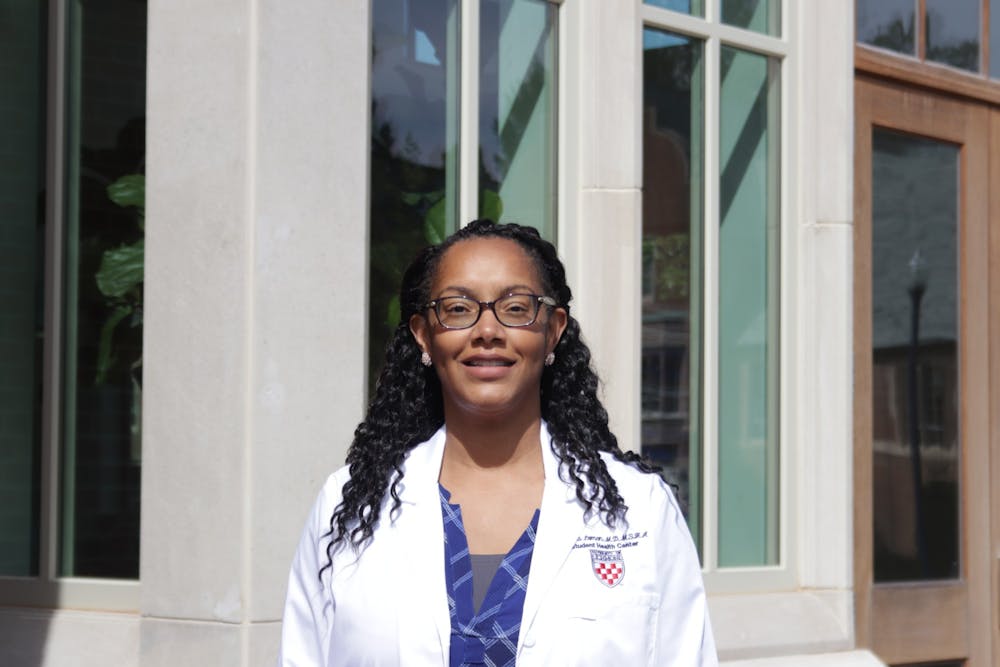The University of Richmond Student Health Center will begin dispensing prescription medication, including emergency contraception, on campus in the fall of 2024.
Dr. Latrina Lemon, the medical director of the Student Health Center, had aspirations of fixing this problem since interviewing for her position back in November 2021.
In the fall of 2023, the Student Health Center began the process of confirming with the Virginia Board of Pharmacy that it complies with all necessary regulations to dispense prescription medication on campus. Some of the future steps for the health center will be installing an alarm and security system for the storage of the prescriptions and undergoing an inspection by the Board of Pharmacy.
While this extensive process may seem daunting, it is not unfamiliar to Lemon. She previously went through this process with Virginia Commonwealth University Health, which gave her confidence that she could complete this process at UR.
“This is a need identified by students,” Lemon said. “We wanted to start now since it will take a lot of time.”
Lemon noted that there was a specific need for emergency contraception mentioned by different student groups and that the Health Center will aim to make an available option.
Sophomore Katie Diventi, the Vice President of Education at UR’s Planned Parenthood Generation Action chapter, said the chapter has proposed the idea of having emergency contraception available.
“We definitely have been floating around the idea of having Plan B, which is emergency contraception, more accessible, because I know with emergency contraception there is a very short window of time when you need to take that after having unprotected sex for that to still work,” she said.
Diventi also highlighted the importance of students having access to non-emergency contraception like birth control on campus.
“A lot of people think birth control is used to control birth, but there are actually a ton of different uses for birth control as well that are not for contraception,” Diventi said. “It can be used to address [polycystic ovary syndrome], heavy menstrual bleeding, painful cramps, endometriosis, acne, excess hair growth; the list goes on and on.”
Diventi noted that before healthcare providers at the Student Health Center prescribe birth control, students must watch an educational video that goes through all the different types of birth control.
This new initiative is expected to increase accessibility for prescribed medication, specifically for students with limited transportation off-campus. First-year Sukie Weiner agrees that picking up prescriptions off-campus is often a challenge for many students.
Enjoy what you're reading?
Signup for our newsletter
“When you’re a college student, you have a lot of classes," she said. "You are already juggling a lot of things, so if you need to go pick up a prescription, it just becomes really annoying since they’re out of the way.”
According to the university, only about 30% of first-year students have cars on campus. While the university does offer free shuttles to get off-campus, working your schedule around this is often time-consuming, Weiner said.
“Even though we have the Spider shuttle, it still takes time to go out to the CVS, and then the Spider shuttle doesn’t come back for another hour, so it takes about two hours of your day to pick up a prescription when you could just walk to the [Student] Health Center,” she said.
Contact news writer Veronica Melendi at veronica.melendi@richmond.edu.
Support independent student media
You can make a tax-deductible donation by clicking the button below, which takes you to our secure PayPal account. The page is set up to receive contributions in whatever amount you designate. We look forward to using the money we raise to further our mission of providing honest and accurate information to students, faculty, staff, alumni and others in the general public.
Donate Now



